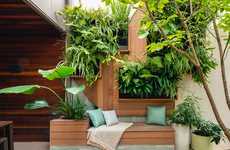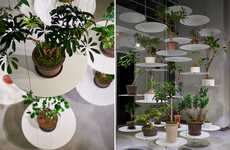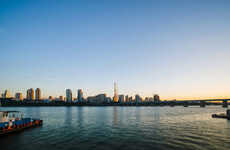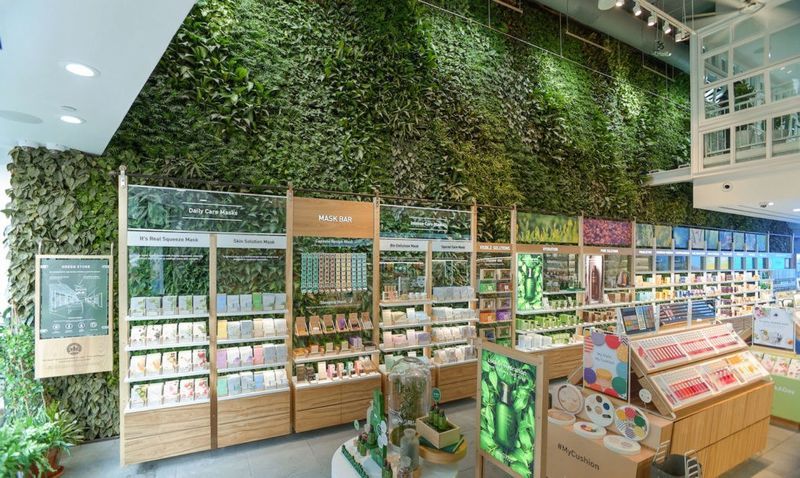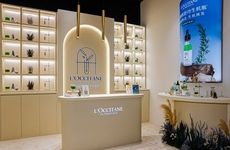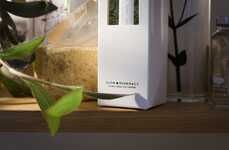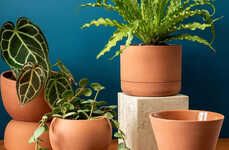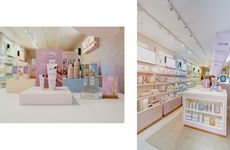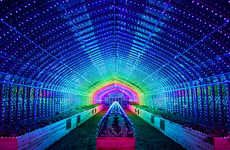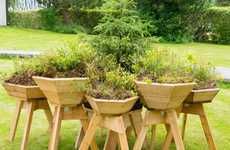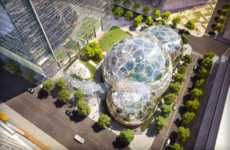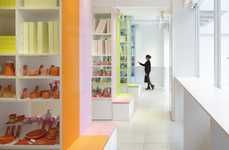
Innisfree's Union Square Location Houses 10,000 Types of Plants
Ellen Smith — October 3, 2017 — Eco
References: greenerynyc & apgroup
Korean beauty brand Innisfree is now home to New York's largest living plant wall, which houses 10,000 different types of vegetation. The 1,820-square-foot wall grows plants of a variety of different origins, including tropical, which can be enjoyed by the public year-round.
The large living wall serves as an embodiment of the Korean beauty brand's philosophy, which revolves around using natural ingredients. This particular living plant wall exists at the brand's Union Square location and comes complete with a built-in irrigation system that eliminates the need for constant human intervention.
The display serves as an iteration of the brand's philosophy, creating an experience for every patron of the store, with visual imagery that confirms the brand's commitment to naturalism.
The large living wall serves as an embodiment of the Korean beauty brand's philosophy, which revolves around using natural ingredients. This particular living plant wall exists at the brand's Union Square location and comes complete with a built-in irrigation system that eliminates the need for constant human intervention.
The display serves as an iteration of the brand's philosophy, creating an experience for every patron of the store, with visual imagery that confirms the brand's commitment to naturalism.
Trend Themes
1. Living Plant Walls - Incorporating living plants into building design to promote naturalism and biophilia can be an attractive and innovative way to improve indoor air quality and reduce stress.
2. Growth of Greenery - The rising popularity of incorporating plants into the built environment presents opportunities for those in the gardening, landscaping, and horticulture industries to provide unique solutions for sustainable and effective indoor greenery.
3. Automated Irrigation Systems - Innovations in automated irrigation technology for living plant walls can increase efficiency and reduce maintenance costs, and as such, represent a potential market for companies in the agriculture, water management, and smart home industries.
Industry Implications
1. Retail - Retailers can benefit from incorporating living plant walls as a way to attract customers, showcase their commitment to sustainability, and boost sales of natural and eco-friendly products.
2. Hospitality - Incorporating living plant walls into hotel lobbies and guest rooms can add a biophilic element to the guest experience, and provide an opportunity for the hospitality industry to differentiate their offerings and appeal to eco-conscious travelers.
3. Architecture - Architects and building designers can incorporate living plant walls into their designs to create healthier indoor environments, improve air quality, and provide sustainable solutions that benefit both human health and the environment.
5.2
Score
Popularity
Activity
Freshness


